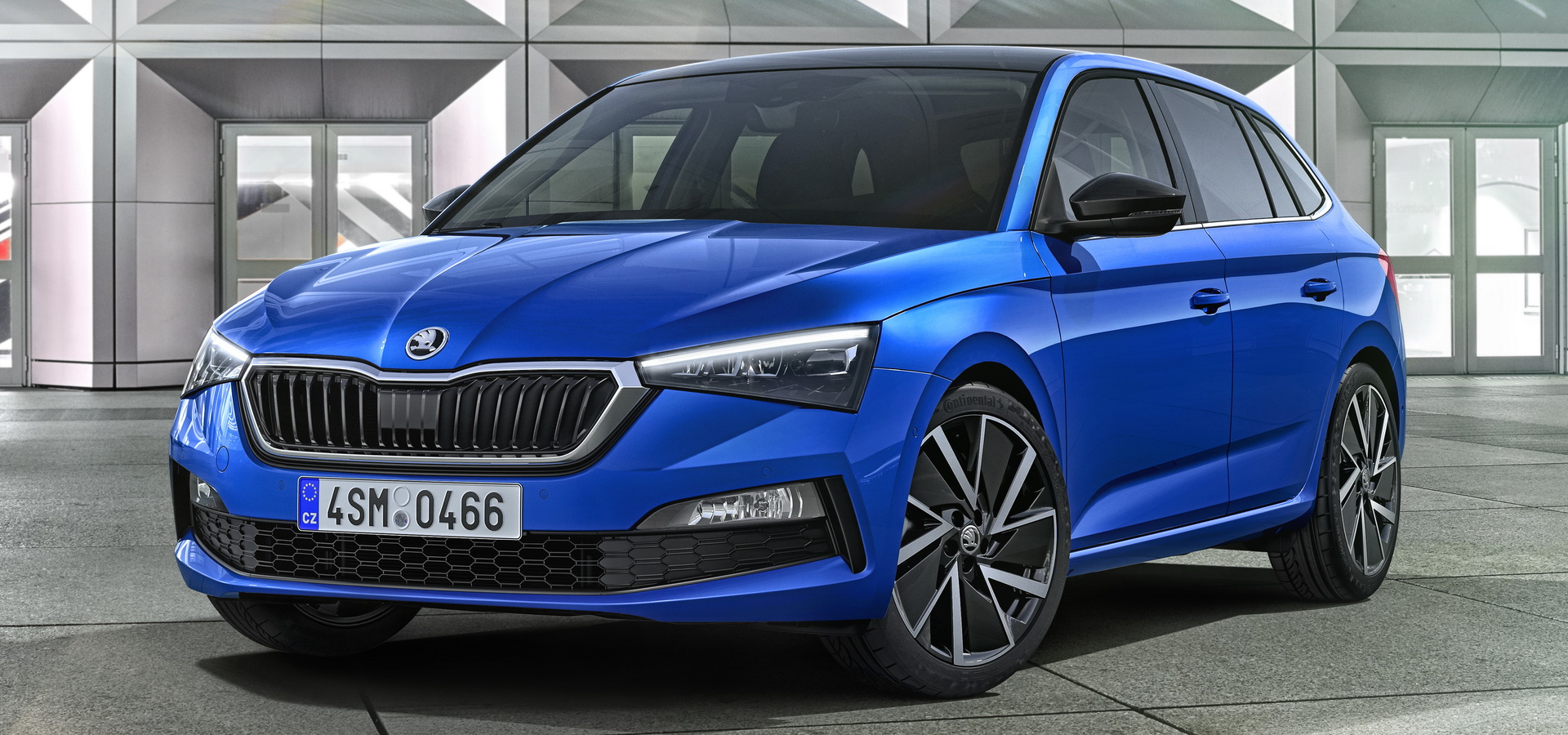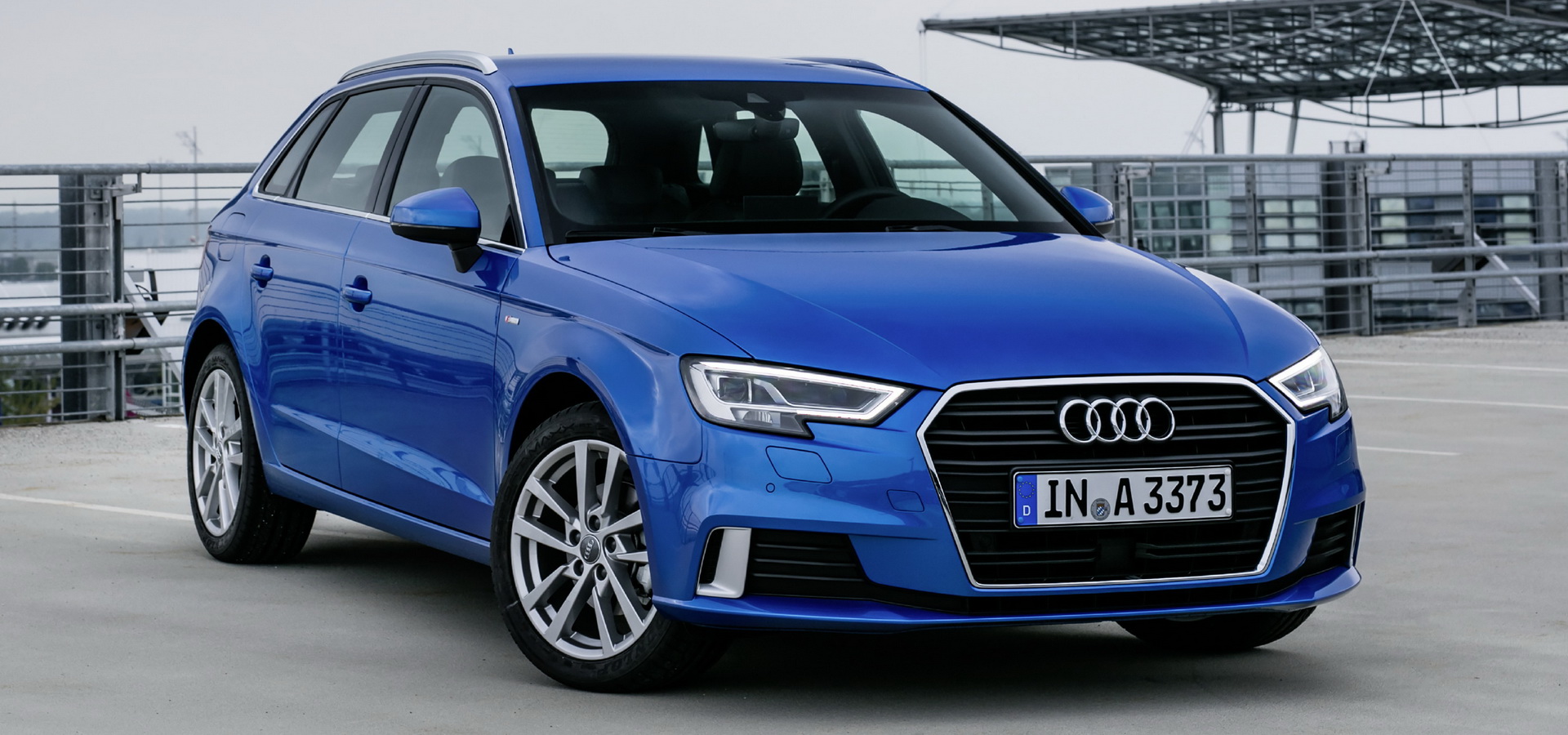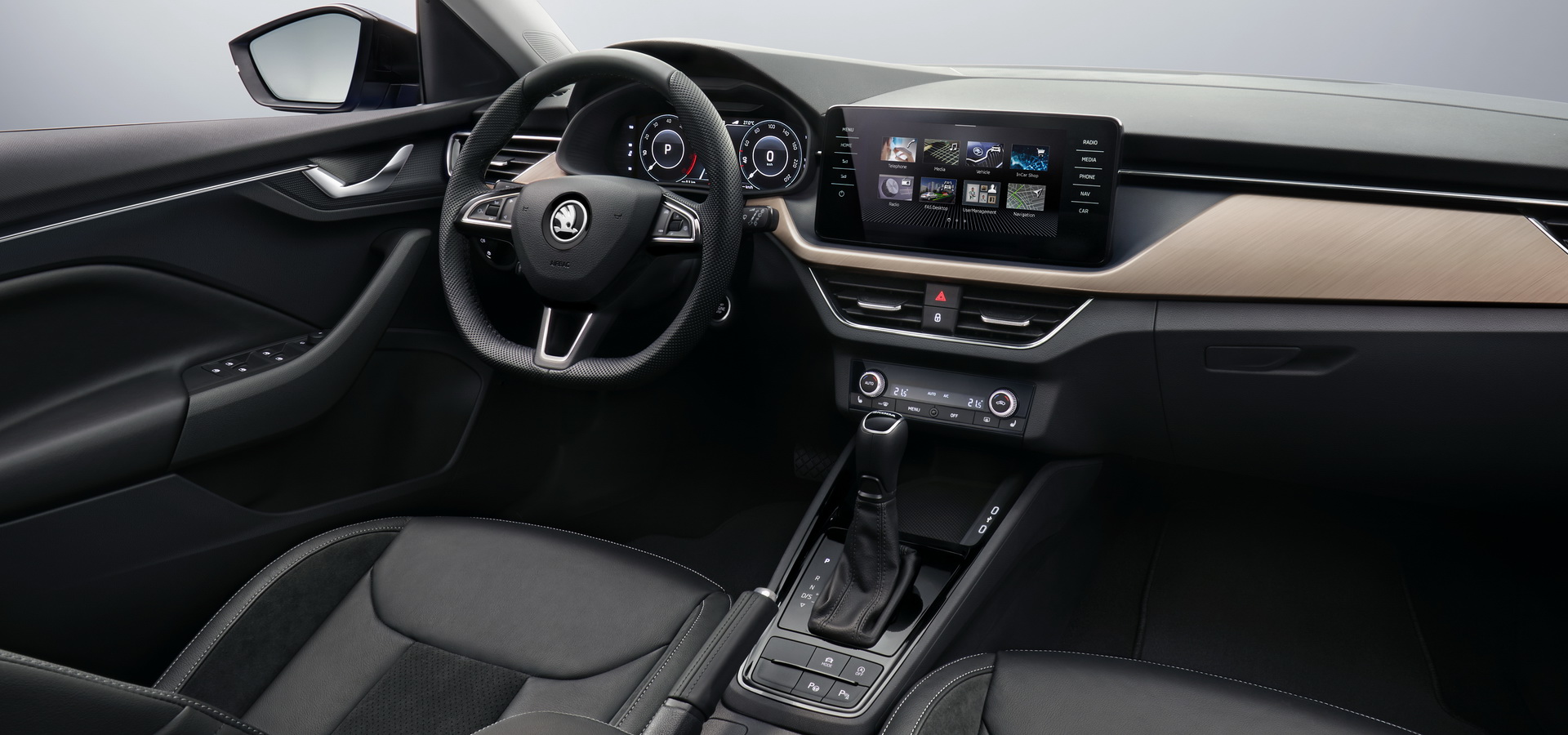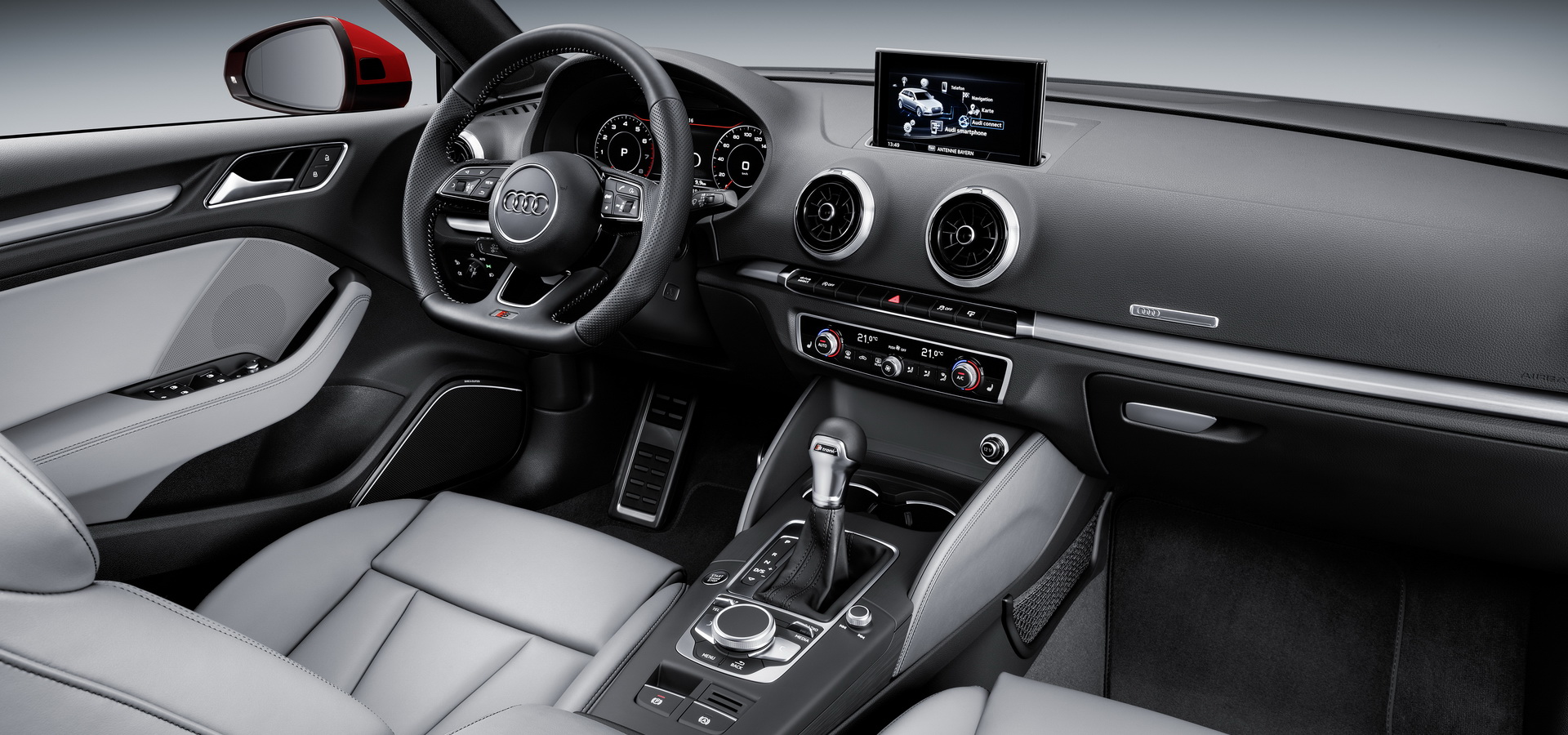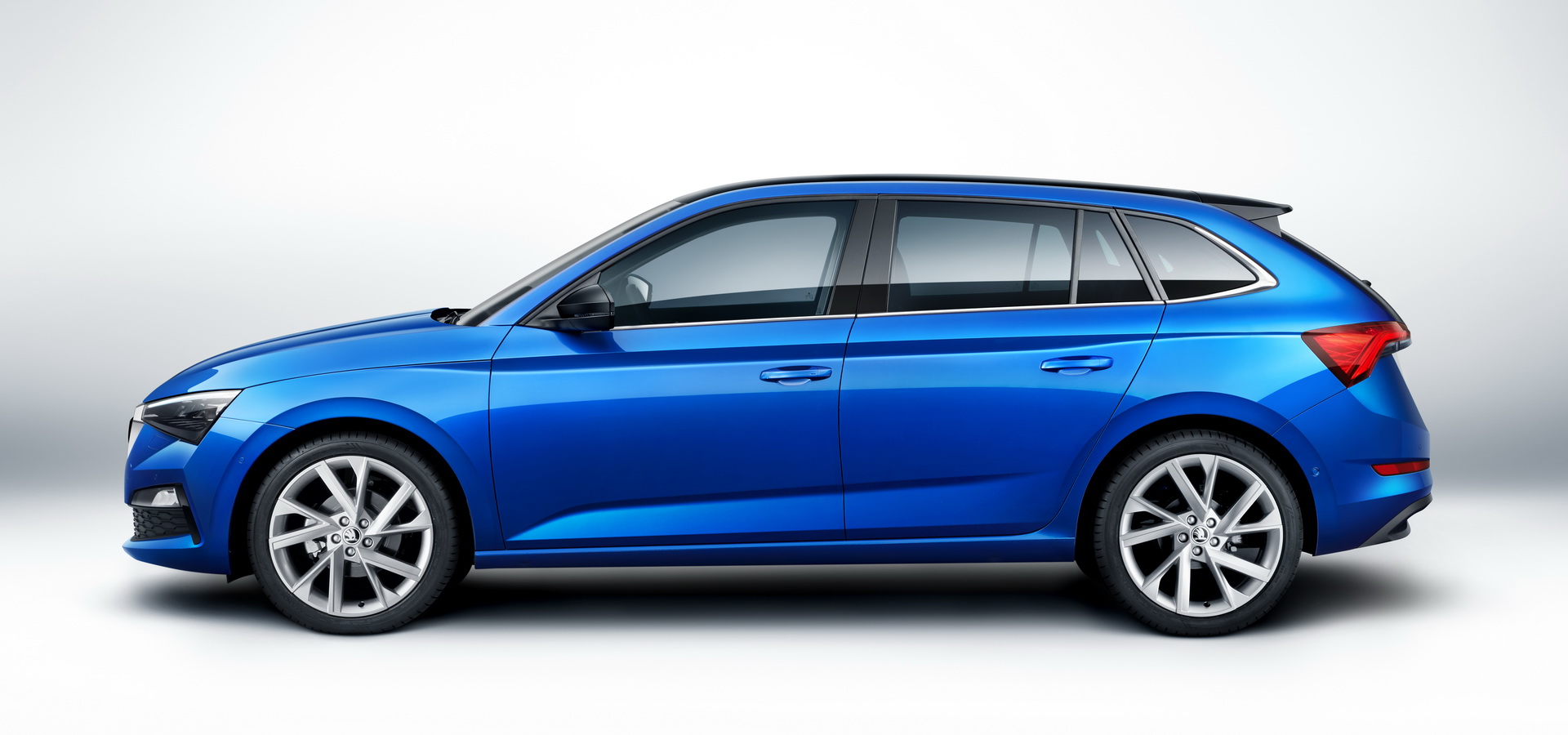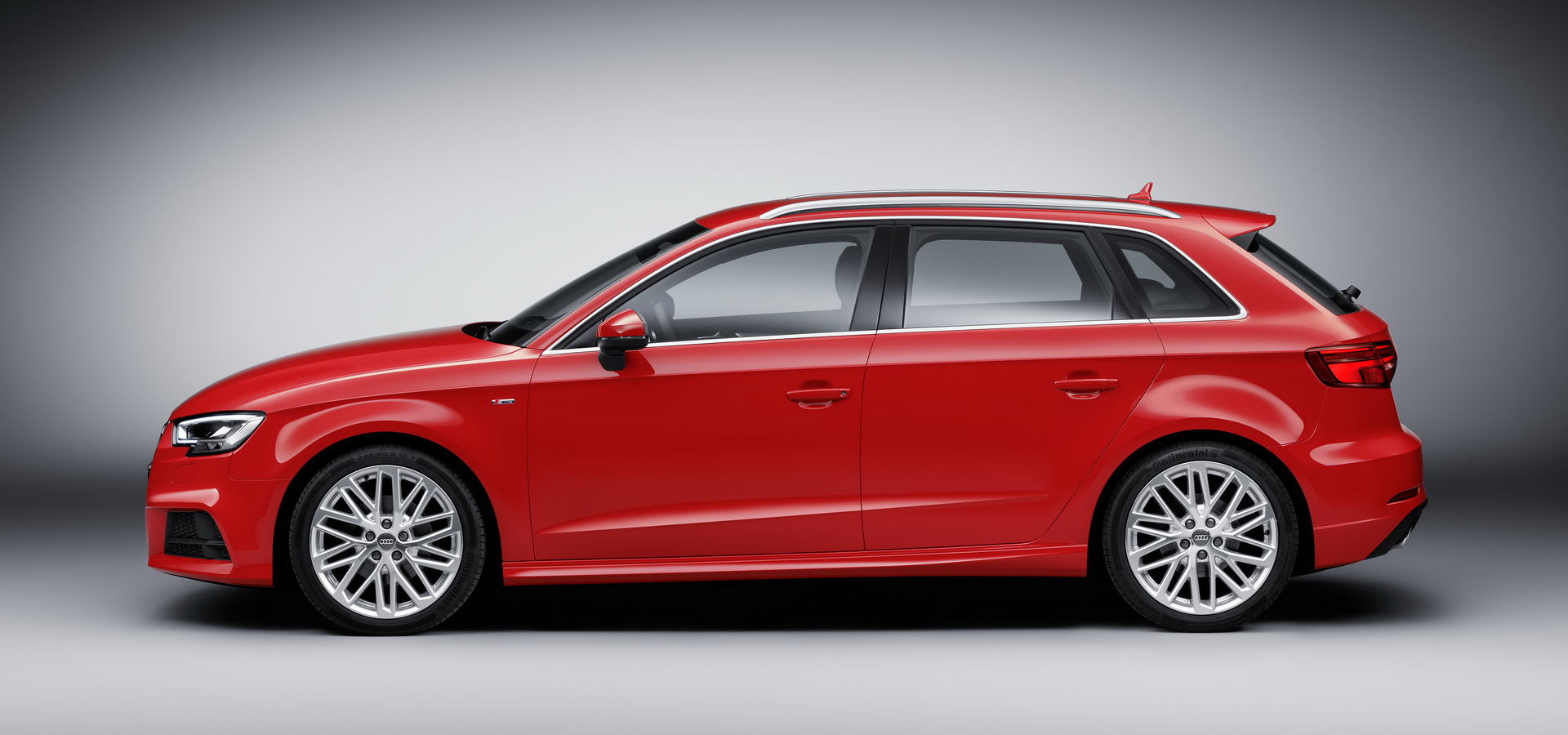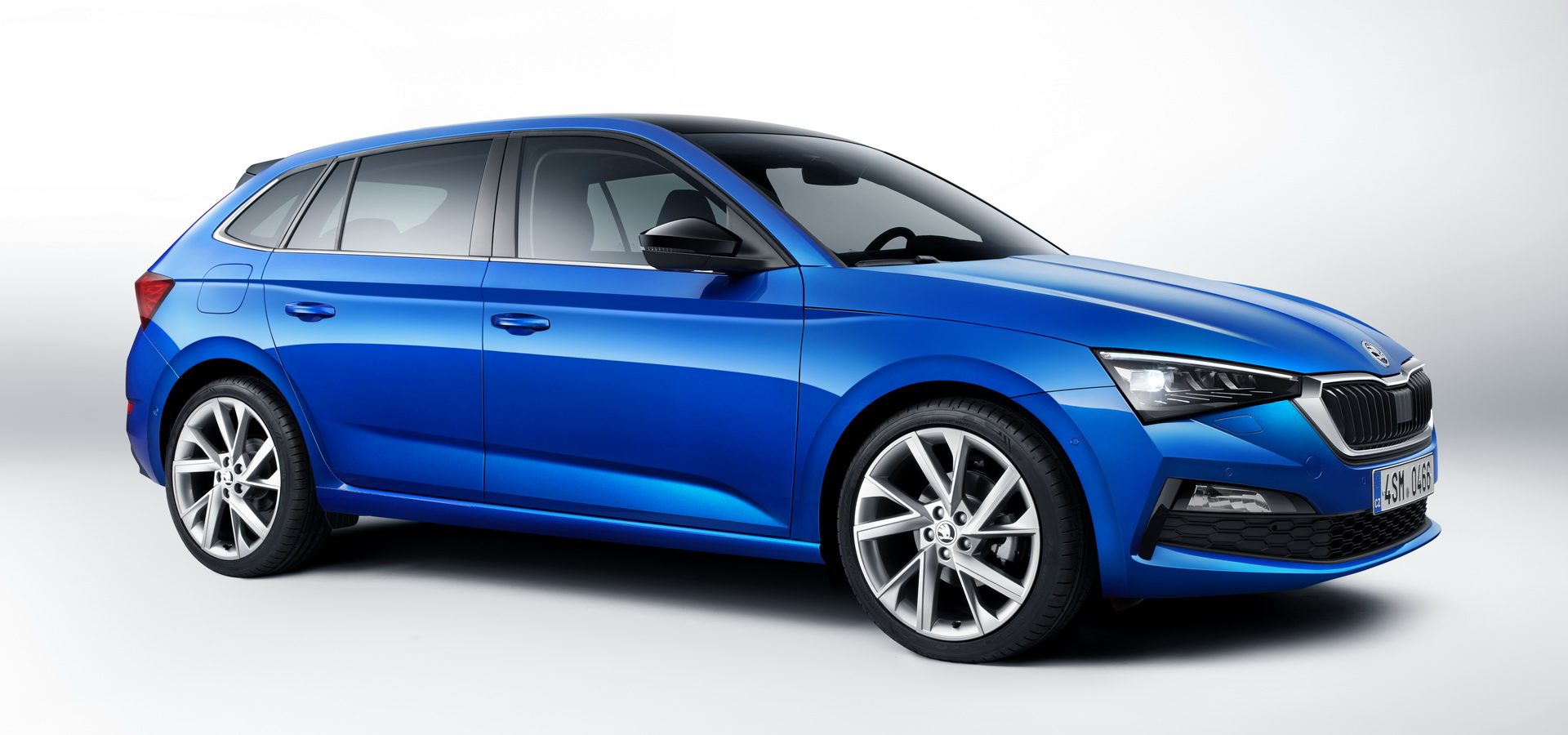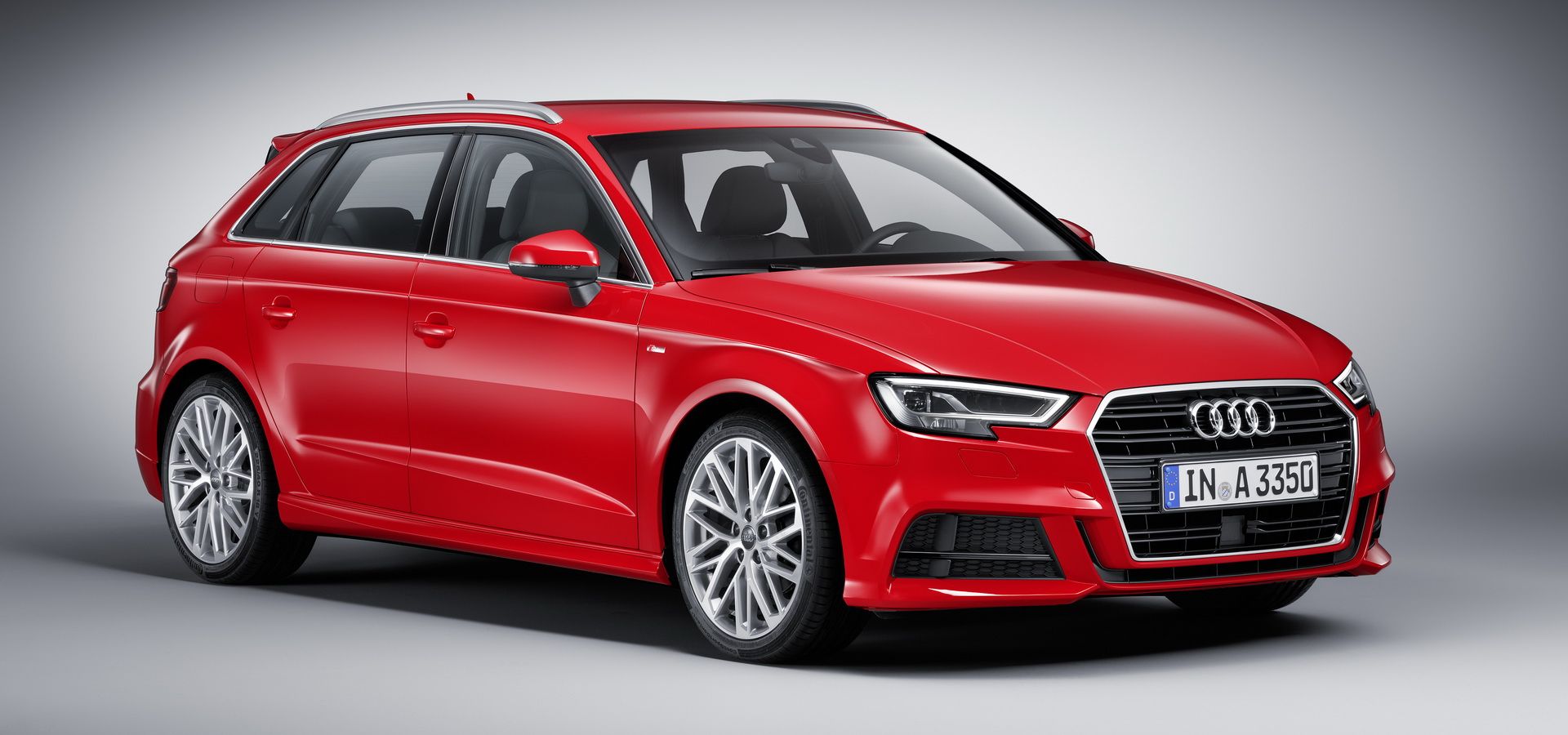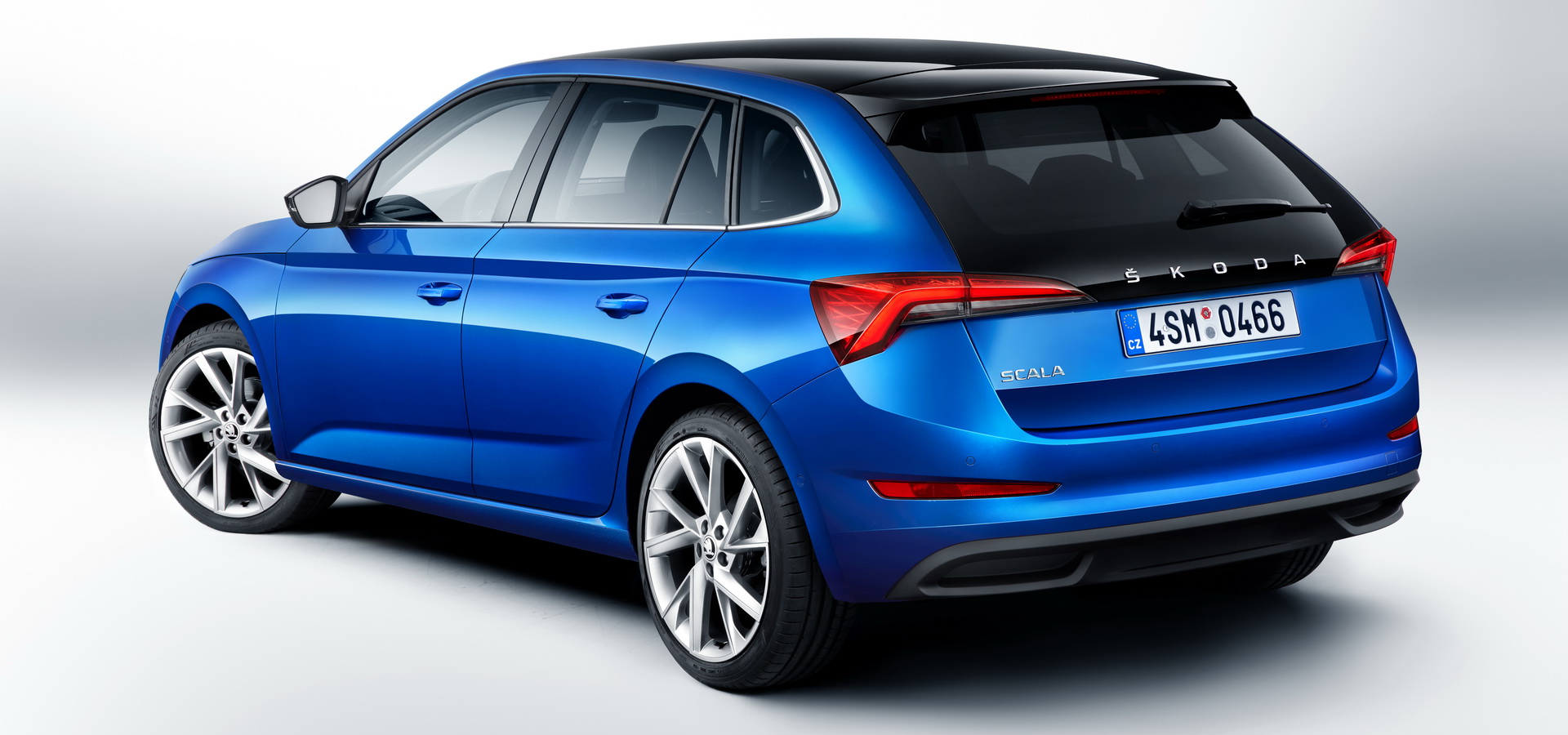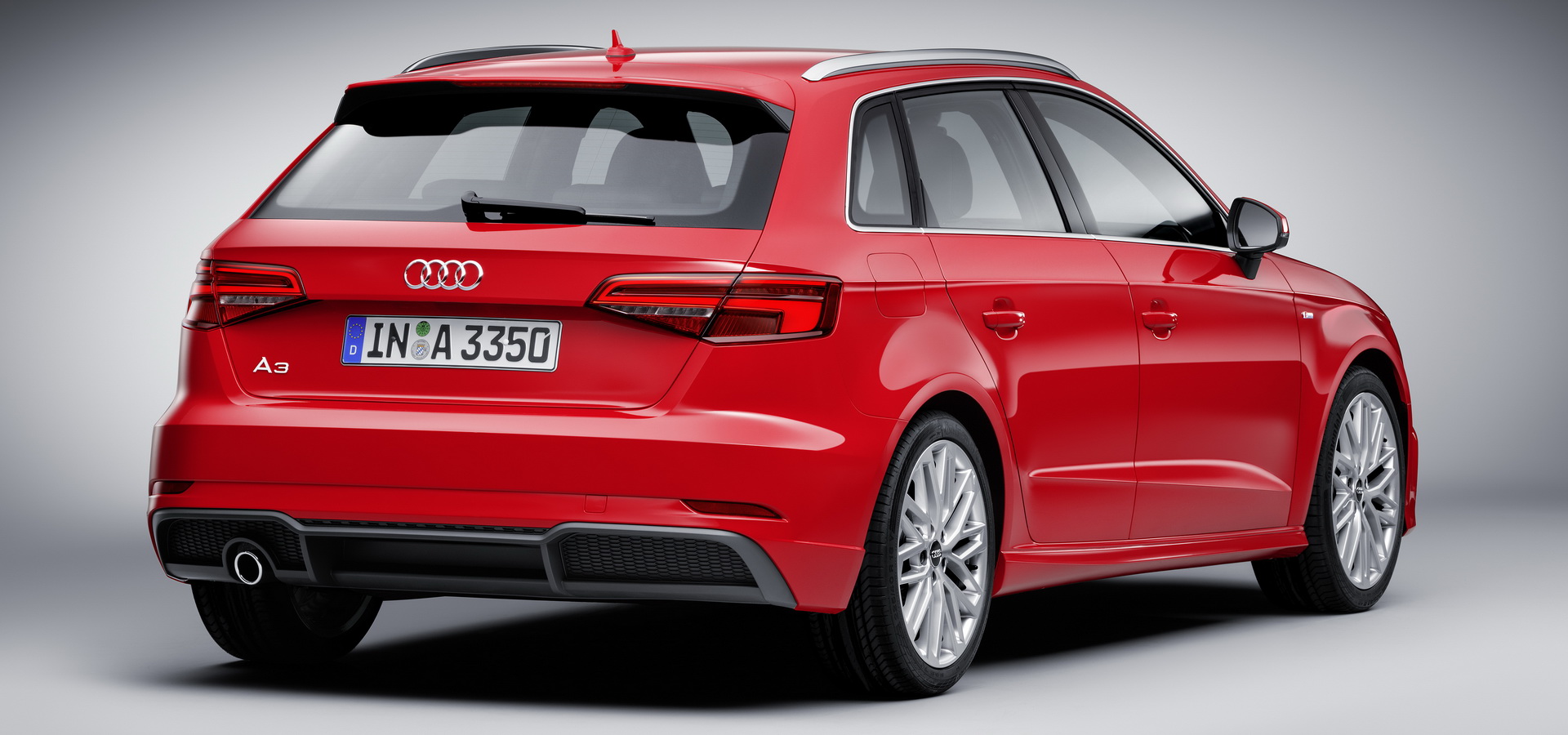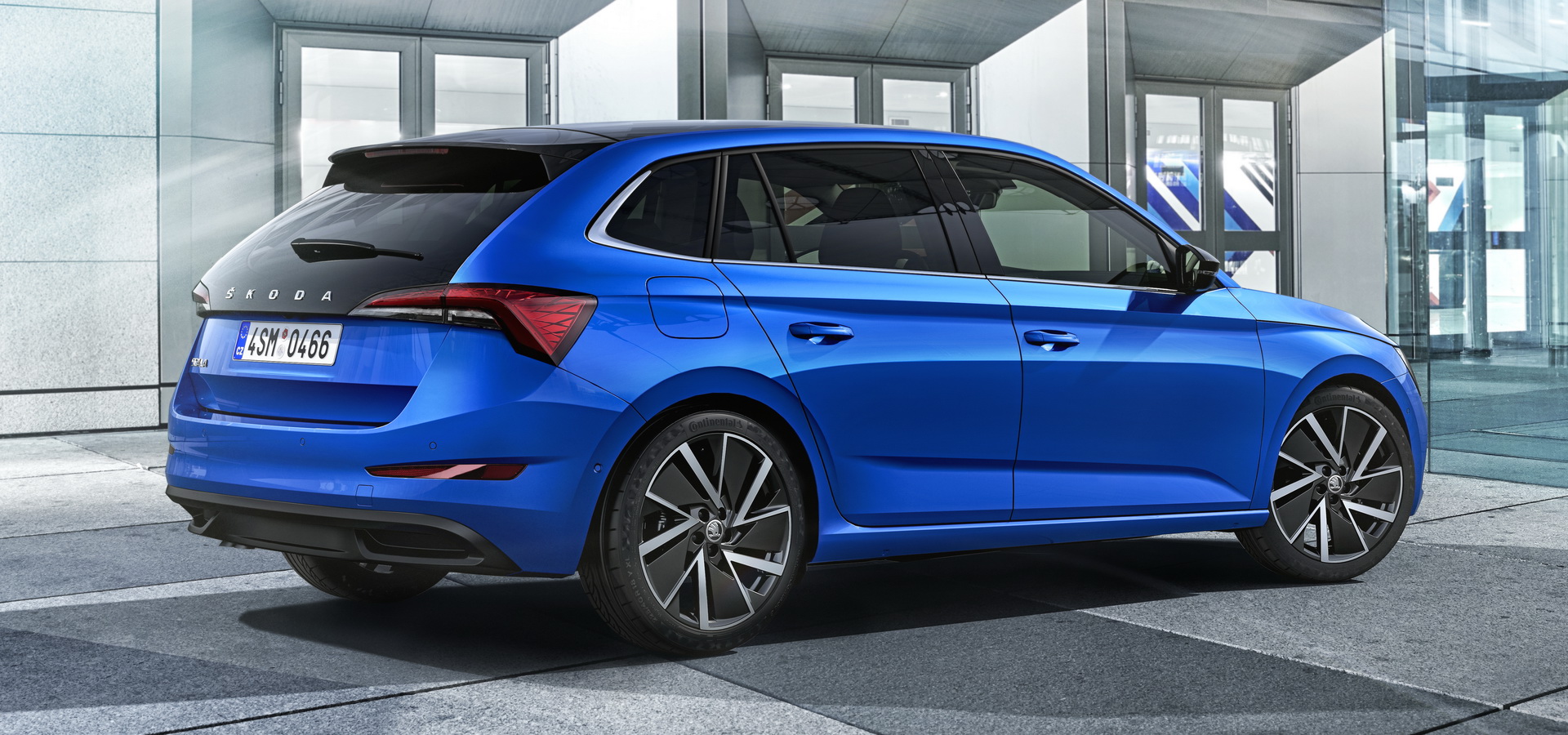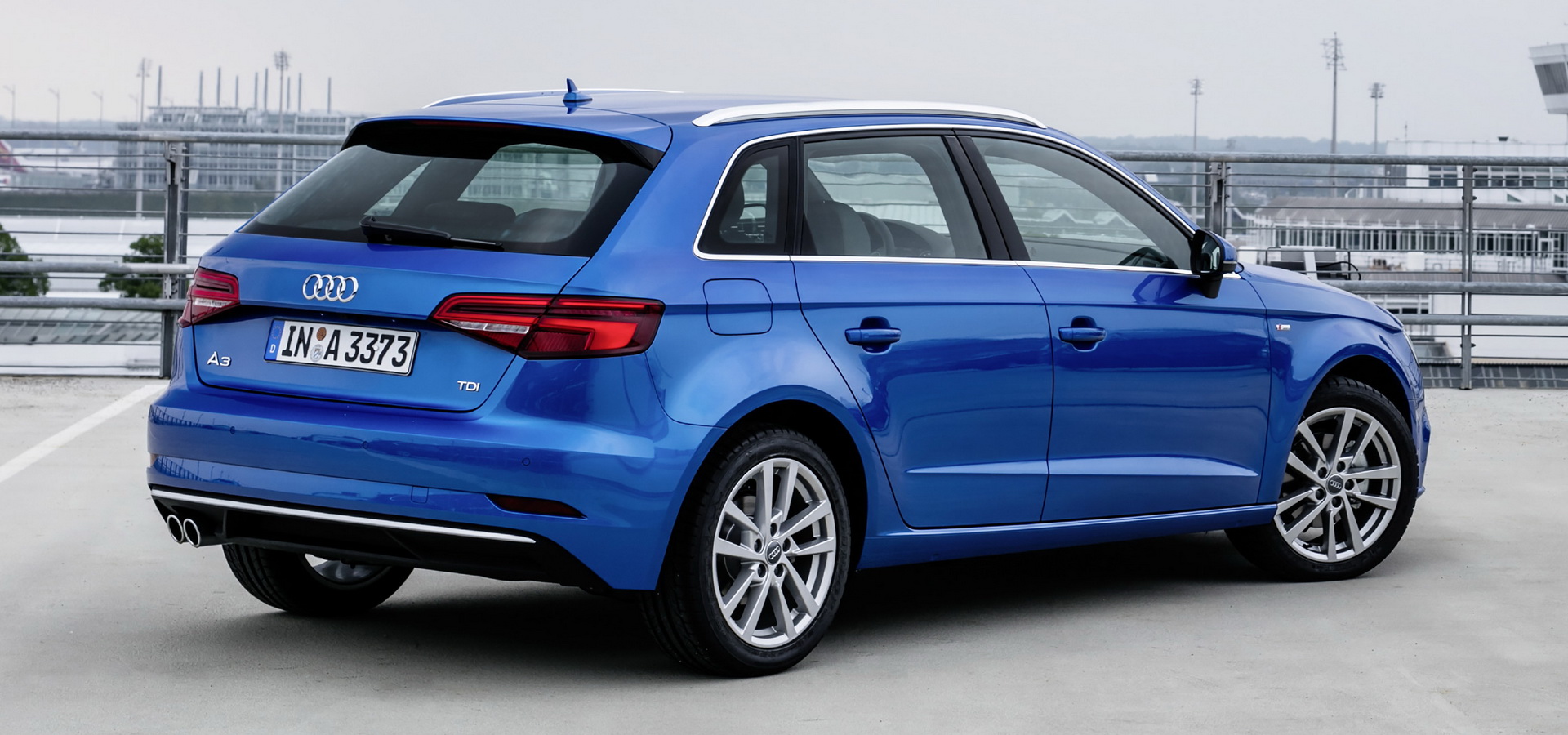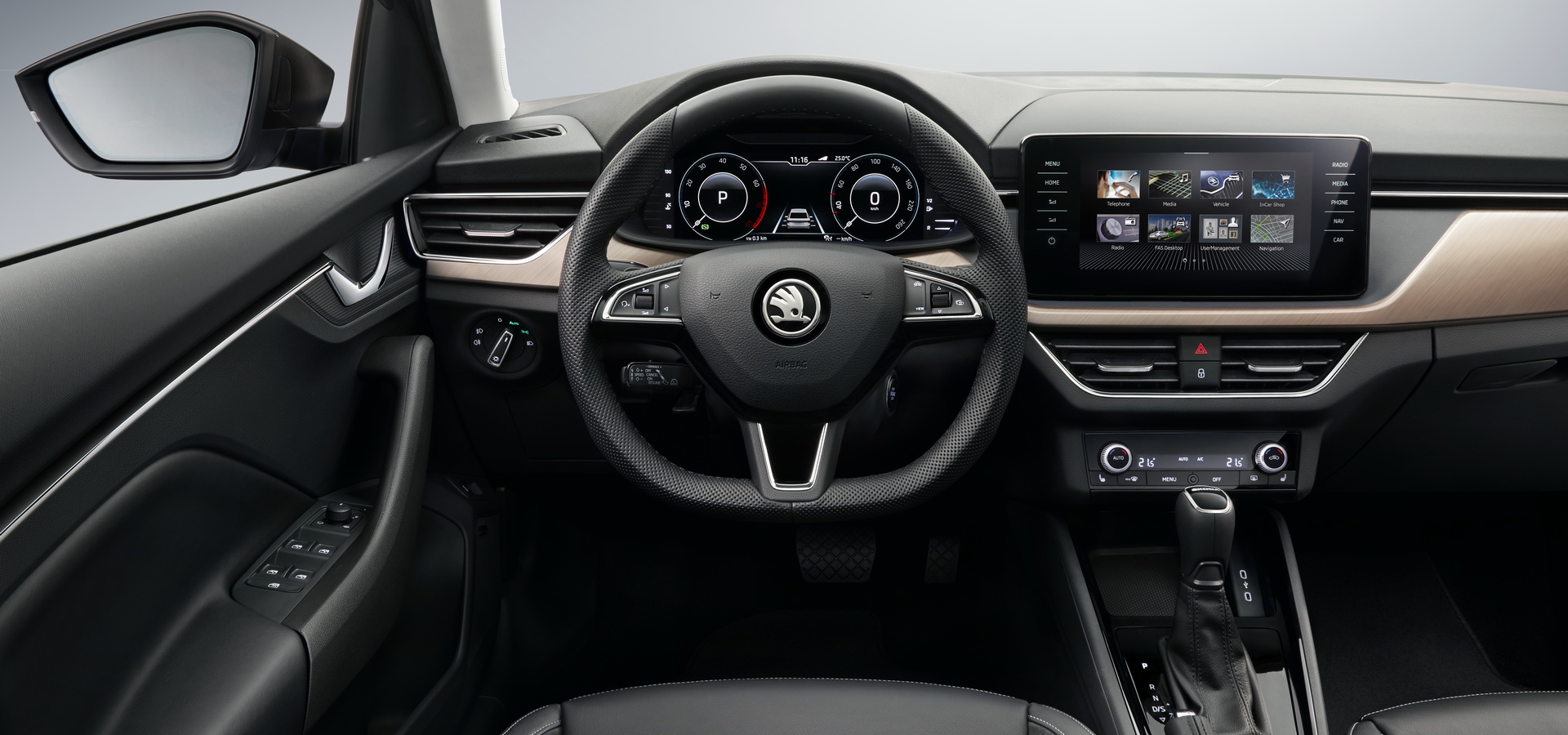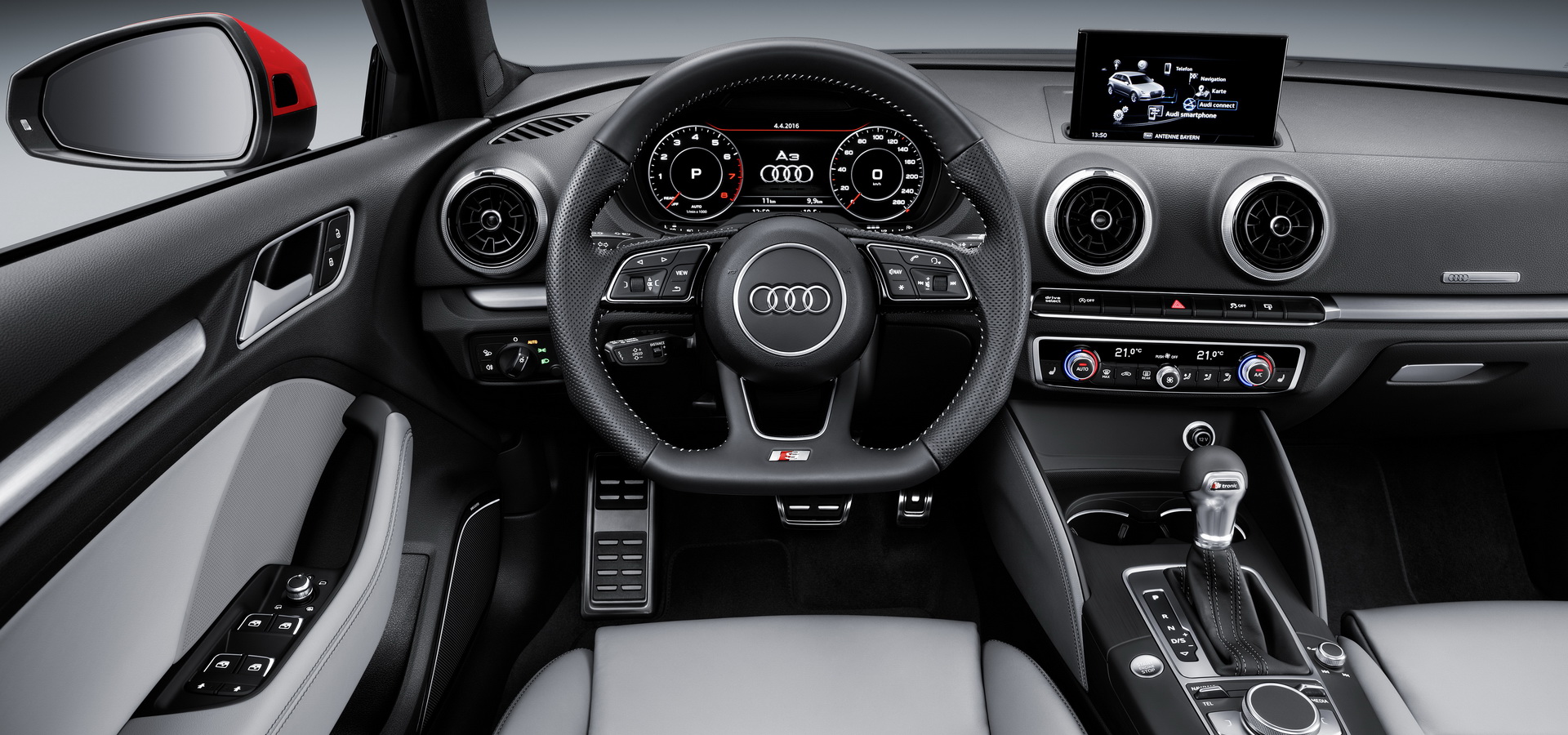Since we brought up this topic during our recent Scala article following its official unveiling, we figured we should dive deeper into just how well Skoda’s newest 5-door hatchback compares to the Audi A3 Sportback.
Of course, it goes without saying that differences in build-quality, performance and driving dynamics are to be expected, since one of the two is the VW Group’s flagship 5-door hatchback offering, whereas the other is more budget-oriented.
Familiar Silhouette
The two VW Group models share a similar silhouette, that of a condensed compact wagon, if you will, that’s accentuated by the rear fourth window.
Compared exclusively to the Audi, you could make a case for the Scala having a slightly more modern design, although we wouldn’t go as far as to say that it’s better looking than the A3 Sportback, whose styling is a lot less detailed with far fewer lines and creases breaking into the overall aesthetic.
What’s interesting though is that the Scala has a slightly longer wheelbase than the A3 at 2,649 mm (104.3 in) versus 2,637 mm (103.8 in). It also has a bigger trunk, with 467 liters (16.5 cu.ft) available with the backseat in place. The Audi? Just 380 liters (13.4 cu.ft).
So then what does this mean? Would you enjoy much greater practicality in the Scala than in the A3? Hard to say, especially since people who actually get excited by such differences in size and volume are usually best suited by cars from superior segments, like mid-sized. To put it plainly, if the Scala’s trunk capacity got you really excited, then we could argue that what you actually need is something like the Octavia Combi, which has a 610 liters (21.5 cu.ft) trunk.
Overall, if you fancy the new Skoda’s triangular partial LED headlights (which are standard by the way), or perhaps its rear end design where the glass blends in with the taillights, we completely understand. Although, the current-generation A3 can be rather handsome, especially in S-line trim.
A stalemate?
Choosing which interior you’d rather have when it comes to these two models should go a little something like this: do I want a more modern-looking cabin with a more advanced infotainment system, a much larger 9.2-inch central display, LED ambient lighting, online services and a 10.25 inch Virtual Cockpit screen? Or should I go for the Audi, which by the way has a larger digital gauge cluster at 12.3-inches, but a much smaller infotainment display.
In terms of driver assistance systems, there isn’t that much between them. The Scala comes with standard Lane Assist and Front Assist with City Emergency Brake systems, while Side Assist, Adaptive Cruise Control and Park Assist are optional extras. Meanwhile, you can also get an A3 with Adaptive Cruise Control, to go with the Pre-Sense system, Side Assist and Park Assist – most of those options can be pricey though.
As for overall quality, you can see that the A3’s interior features leather on the sides of the center console, more leather with contrast stitching on the door panels and we’d wager that it also has higher quality plastics and inserts. We haven’t driven the Scala yet (obviously), but multiple run-ins with the A3 have taught us that it’s one seriously well-built car – arguably still best in class, despite Mercedes’ all-new A-Class.
European buyers need only wait until the first half of 2019 to see the Scala in dealerships, and if Skoda is going to price it anywhere near where the Octavia is right now, then it might end up roughly 5,000 euros ($5,700) cheaper than an entry-level A3 Sportback in markets such as Germany. Although, in some Eastern European countries, the price difference could be even greater.




